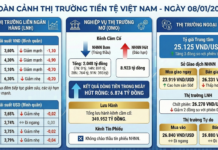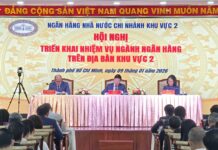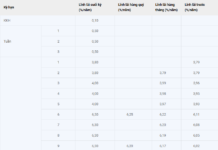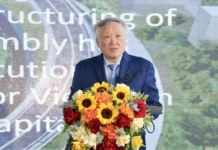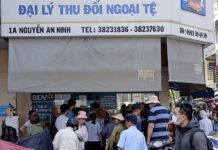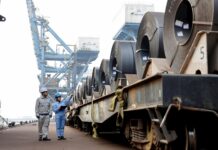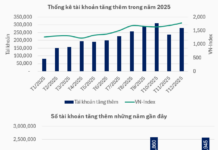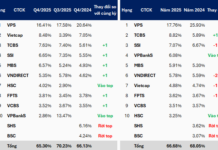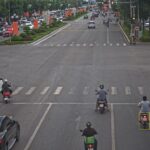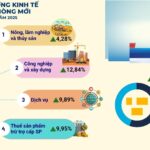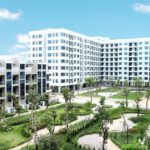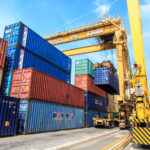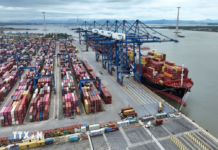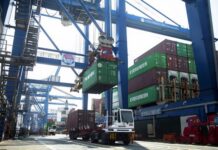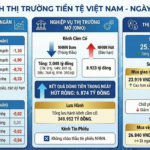Bac Ninh’s Economy Projected to Rank 5th Nationwide by 2025
During the 2020-2025 term, despite severe impacts from natural disasters, pandemics, and global economic fluctuations, the Party Committee, government, and people of the former Bac Ninh and Bac Giang provinces (now unified as Bac Ninh Province) have demonstrated remarkable resilience, innovation, and determination. Their efforts have led to the successful fulfillment of key objectives and significant achievements, as evidenced by concrete data.
Bac Ninh has emerged as a standout in economic development, with several key indicators ranking among the nation’s top performers. Specifically, from 2021 to 2025, the average GRDP growth rate is estimated at 8.98% per year, significantly surpassing the national average. By 2025, the province’s economic scale is projected to reach 522 trillion VND, placing it 5th nationally and 3rd in the Red River Delta region. Per capita GRDP is expected to reach 5,810 USD, nearly 1.3 times higher than at the term’s outset.
The economic structure has shifted markedly toward industrialization and modernization. By 2025, the industrial and construction sectors will account for 71.3%, services 19.5%, and agriculture, forestry, and fisheries just 6.3%. Average incomes have risen sharply, improving living standards and strengthening public trust in the provincial Party Committee’s leadership.
Industry has been the primary driver of growth, with the added value of the industrial sector increasing by an average of 11% annually. The Industrial Production Index (IIP) remains high, consistently ranking among the nation’s leaders.
A significant highlight is the development of high-tech industrial clusters, particularly in electronics and semiconductors. This marks a crucial step for Bac Ninh to integrate deeply into the global value chain and become Vietnam’s premier high-tech manufacturing hub.
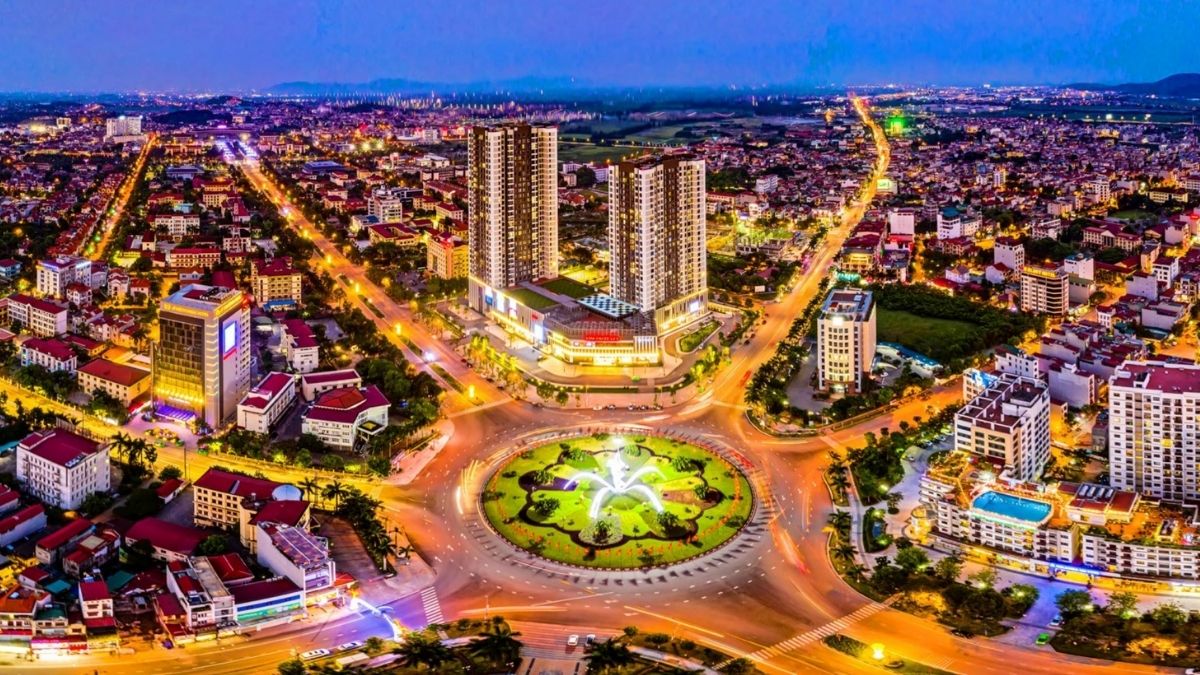
Manufacturing and processing industries account for over 70% of the sector, reflecting a positive shift from assembly-based to higher value-added production. Industrial zones and clusters have expanded rapidly, with 25 new industrial zones and 24 industrial clusters attracting hundreds of large-scale FDI projects.
Alongside modern industry, small-scale industries and traditional crafts remain vital, providing employment and preserving cultural heritage. The province is home to 87 traditional craft villages and dozens of craft-focused hamlets, with many products recognized under the OCOP program and showcased in domestic and international markets.
The economic structure has shifted positively, with industry and construction exceeding 71%, services nearing 20%, and agriculture at 6.3%. With over 20 billion USD in FDI, Bac Ninh has become a leading national hub for imports and exports, achieving a total trade turnover of nearly 660 billion USD from 2021 to 2025. Infrastructure has been developed comprehensively, expanding development space and regional connectivity. Urbanization has accelerated, reaching 42% post-merger.
Trade and services have grown impressively, averaging 7.22% annually, with total retail sales and services reaching 761.6 trillion VND from 2021 to 2025, up 16.5% per year.
E-commerce has thrived, consistently ranking Bac Ninh among the nation’s top 10 in e-commerce indices. This underscores the rapid adaptation of businesses and residents to the digital age.
Tourism has made notable strides, attracting nearly 18 million visitors over five years, generating revenue of 14,047 billion VND—increases of 47% and 86%, respectively, compared to 2016-2020.
By 2030, Bac Ninh Aims to Become a Centrally Governed City
The First Congress of the Bac Ninh Provincial Party Committee set the goal for Bac Ninh to become a centrally governed city by 2030, achieving rapid, comprehensive, and sustainable development. Industry and trade-services will remain the strategic pillars driving this transformation.
With a strategic focus on high-tech industry and modern services, coupled with synchronized solutions, Bac Ninh is poised to solidify its position as a leading economic and industrial hub in the North, contributing significantly to Vietnam’s industrialization and modernization goals.
Strategic Gateway for FDI: Hai Phong’s New Industrial Zone Unveiled
Hai Phong is rapidly emerging as a magnet for foreign direct investment (FDI), boasting remarkable growth figures. The development of next-generation industrial zones, designed with a focus on sustainability, eco-friendliness, and high technology, has not only become a focal point for investment but also offers a solution to the port city’s sustainable development challenges.
Exciting News for Thousands of Residents in Bac Ninh
Masterise Homes, renowned for its luxury segment, is now venturing into the social housing sector alongside other real estate developers. They are launching a groundbreaking 4,000-billion-VND project in Bac Ninh, marking a significant expansion in their portfolio.






